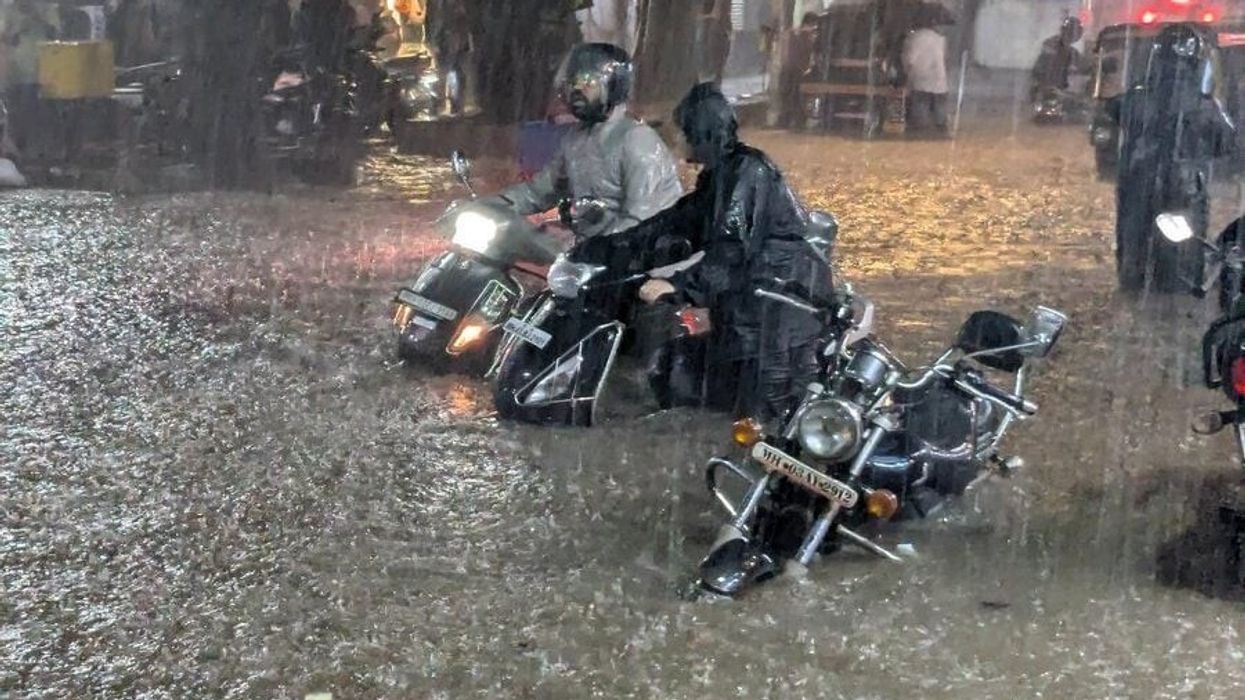TORRENTIAL rains swept across Mumbai, causing severe flooding, disrupting daily life, and claiming at least four lives, officials said.
The financial capital of India was paralysed on Thursday, with schools and colleges ordered to close as a red alert was issued for the city and its adjoining districts of Thane, Palghar, and Raigad.
Parts of Mumbai recorded around 275 mm of rainfall on Wednesday evening, leading to widespread waterlogging, road closures, and train delays affecting millions of commuters. The Brihanmumbai Municipal Corporation (BMC) announced a holiday for all schools and colleges in Mumbai on Thursday, following extremely heavy rainfall.
Schools and colleges in nearby areas of Thane, Palghar, Pune, and Pimpri-Chinchwad were also shut due to the weather conditions.
The BMC and local police advised residents to stay indoors. “Mumbaikars, if not required, avoid stepping out of home,” the BMC posted on X.
The India Meteorological Department (IMD) has issued a Red Alert for Mumbai, till tomorrow morning 8.30am.
In view of this, all schools and colleges in Mumbai have been declared a holiday for tomorrow Thursday, 26 September 2024, in consideration of the safety of students.
The…
— माझी Mumbai, आपली BMC (@mybmc) September 25, 2024
Drone footage on social media showed major highways clogged with traffic, with some cars abandoned by drivers. Roads in certain areas, like Sonapur in Bhandup, resembled rivers after the city received over 100 mm of rain in just five hours on Wednesday evening.
The India Meteorological Department (IMD) earlier issued a warning for "thunderstorms accompanied by lightning and heavy to very heavy rainfall with gusty winds reaching 40-50 kmph" in its Thursday morning update. Fishermen were advised to stay off the coast until Friday.
India's monsoon season, which typically starts to retreat by mid-September, began withdrawing from the northwest earlier this week. However, the extended rains have both replenished reservoirs and damaged crops in various states.
Heavy rain was also forecast for parts of the southern state of Telangana on Thursday, according to the IMD.
(With inputs from agencies)




